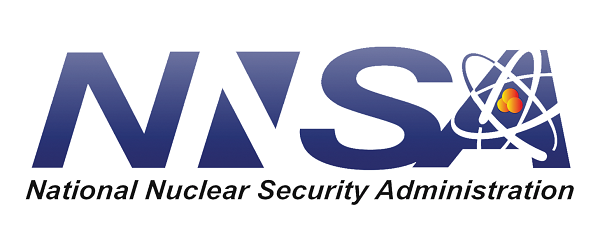 AMD and Supermicro have upgraded the “Corona” cluster at Lawrence Livermore National Laboratory for COVID-19 drug discovery and vaccine research. The addition of nearly 1,000 AMD Radeon Instinct MI50 GPU accelerators to the National Nuclear Security Administration’s Corona system (named for the solar eclipse of 2017) increases the throughput of the cluster from about 4.5 petaFLOPS to more than 11 petaFLOPS peak performance, according to Livermore, “enabling the system to better handle the complex simulations performed as part of LLNL’s research on COVID-19 antibodies and antiviral compounds.”
AMD and Supermicro have upgraded the “Corona” cluster at Lawrence Livermore National Laboratory for COVID-19 drug discovery and vaccine research. The addition of nearly 1,000 AMD Radeon Instinct MI50 GPU accelerators to the National Nuclear Security Administration’s Corona system (named for the solar eclipse of 2017) increases the throughput of the cluster from about 4.5 petaFLOPS to more than 11 petaFLOPS peak performance, according to Livermore, “enabling the system to better handle the complex simulations performed as part of LLNL’s research on COVID-19 antibodies and antiviral compounds.”
Delivered to LLNL in 2018, Corona is used for unclassified open science applications. Since the pandemic began, the system has supported researchers’ in the design of antibodies that bind to SARS-CoV-2, the virus that causes COVID-19. In simulations, antibody candidates that show promise for blocking the virus from human receptors and preventing infection are being synthesized and tested, according to Livermore.
Technicians installed an additional 121 AMD EPYC 7002 CPU nodes with 968 Radeon Instinct MI50 GPUs into the Corona system, each node containing six GPUs. Designed for deep learning, the AMD MI50 accelerators deliver up to 26.5 teraFLOPS of native peak theoretical half-precision or up to 13.3 teraFLOPS of single-precision peak theoretical floating-point performance, combined with 32GB of high-bandwidth memory.
“The expansion of Corona allows us to routinely run the computationally intensive molecular dynamics simulations to obtain the free energy between antibodies-antigens, an important feature in machine learning for narrowing down the mutant antibodies that might bind to the SARS-CoV-2 spike protein,” said LLNL COVID-19 researcher Felice Lightstone. “Additionally, Corona is being used to calculate features and conformations of more than one billion chemical compounds to screen against four binding sites in the SARS-CoV-2 proteins by machine learning and molecular docking studies.”
 San Jose-based Supermicro provided the motherboards, servers and racks necessary for the expansion.
San Jose-based Supermicro provided the motherboards, servers and racks necessary for the expansion.
The upgrade was funded by the Coronavirus Aid, Relief and Economic Security (CARES) Act, signed into law in March, providing funding to the Department of Energy national laboratories for COVID-19 research, including the development of disease countermeasures and vaccines.
“The Corona system is a major advance in our capability for predictive biomedical modeling for COVID-19,” said LLNL Deputy Associate Director for Programs Jim Brase, who heads the Lab’s COVID-19 research and rapid response effort. “It allows us to develop advanced simulations of the structure and function of virus and to use large-scale machine learning to discover and optimize new therapeutics. This performance boost will help the Corona system lead the way in accelerating pandemic response.”
In addition to work by LLNL scientists, the Corona cluster is offered to researchers worldwide through the COVID-19 HPC Consortium, which makes free compute cycles available to COVID-19 researchers from outside institutions. The consortium involves more than a dozen member institutions in government, industry and academia and is spearheaded by the White House Office of Science and Technology Policy, the U.S. Department of Energy and IBM.
AMD also will be donating computing cycles on the Corona system to LLNL COVID-19 researchers and projects for approved projects as part of its COVID-19 HPC Fund.




